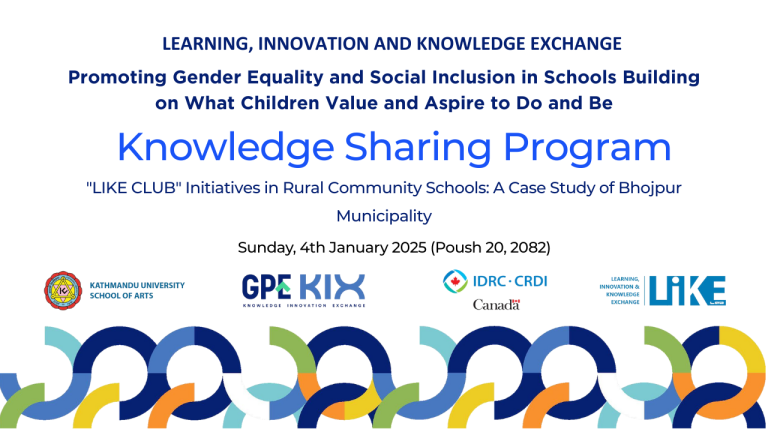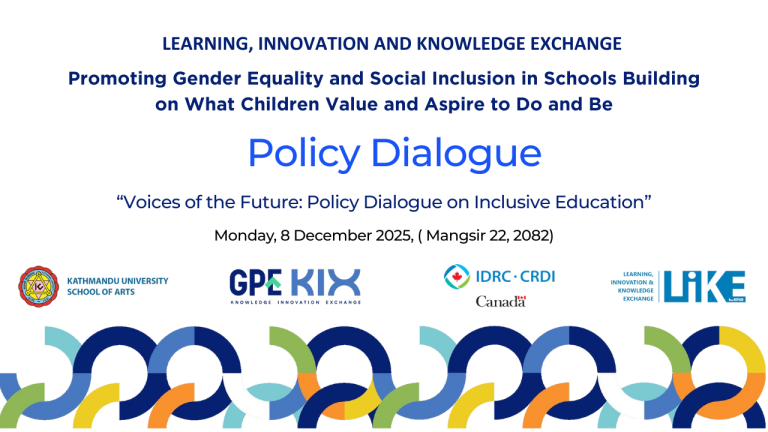
KATHMANDU, NEPAL, MAY 27th, 2025 – A Knowledge Sharing Program on “Strengthening the Public Education System” was organized by the Learning, Innovation and Knowledge Exchange (LIKE) Lab, Kathmandu University School of Arts in collaboration with the Education Journalists’ Group. The session convened 50 participants, including educators, researchers, policymakers, and civil society actors, to engage in critical discussions around strengthening equity, quality, and accountability in Nepal’s public education system.
The event opened with a welcome by Ms. Nirjala Kashyapati, who urged participants to engage meaningfully in shaping inclusive educational reforms. Ms. Isha Karki, Research Fellow at LIKE Lab, presented an overview of the “Promoting Gender Equality and Social Inclusion in Schools: Building on What Children Value and Aspire to Do and Be” (CVEC Project). Dr. Binayak Krishna Thapa, Principal Investigator of the CVEC Project, reflected on the role of higher education in improving school systems. He emphasized that the goal of the project is to generate knowledge for influencing education policy rather than immediate implementation. He also critiqued the historical reliance on quantitative indicators and called for a rethinking of how public education is framed and governed, drawing on educational philosophy.
Reflections on Public Education
- Higher education institutions can play a critical role in generating research to influence school-level policy and practice.
- The focus must shift from numerical indicators to lived experiences of children.
- The public education system in Nepal faces issues of declining quality, politicization, and inadequate accountability.
- There is a need to rethink governance structures and embrace child-centered frameworks.
Key Discussion Highlights
- Nepal’s education sector includes widespread initiatives (e.g., midday meals, WASH, disability screening), but monitoring and implementation remain weak.
- Disconnection between communities and schools has undermined local ownership.
- GESI frameworks exist in policy but are not fully embedded in curriculum or school culture.
- Community involvement through PTAs, alumni, and child clubs is critical for school improvement.
- Capabilities must be understood contextually; interventions should reflect diverse local realities.
- Federal-level delays in passing education legislation have hindered progress and clarity of roles.
The session ended with a call for shared responsibility across government, educators, and civil society. Emphasis was placed on collaborative action to build an inclusive, accountable, and resilient public education system.



